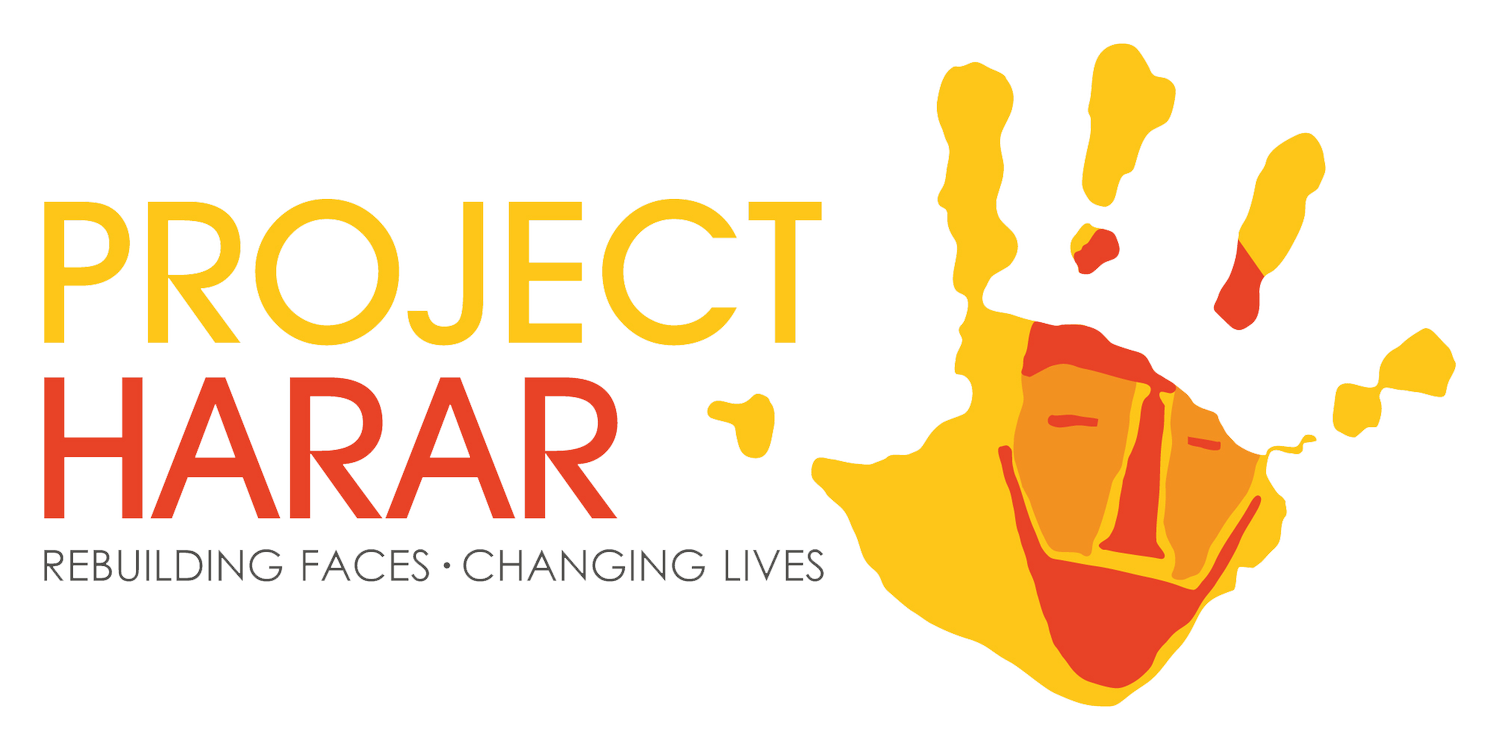Project Harar provides Speech Therapy consultations for children as part of comprehensive cleft care
Project Harar's designated Speech and Language Therapist Natnael is pictured during a speech therapy session with the child and parent, as well as an assisting health worker.
Project Harar, in collaboration with Transforming Faces, has been at the start of speech therapy consultations in Ethiopia. This is a new and exciting development in Ethiopia contributing to Comprehensive Cleft Care.
In 2019, the very first cohort of Speech and Language pathologist professionals were trained and graduated in Ethiopia to provide speech and language therapy as a result of The Toronto Addis Ababa Academic Collaboration (TAAAC). Natnael, a Project Harar team member, graduated from this scheme in 2019 and is our charity’s designated speech and language therapist. He is now training medical health workers to support the delivery of Speech Therapy with Project Harar. This training consists of theory and practical classes, as well as assessment periods and on-the-field training supervised by Natnael.
Training of health workers:
There is a particular process for training medical health workers. Otherwise known as community-based health workers, the health workers are being trained to become community-based model speech therapists.
A typical structure of training sessions, these are separated into theory (2 weeks) and practical (1 week) lessons. The theory lessons are formatted like a lecture class, they last 15 days and taught by Natnael (speech and language therapist); this covers all that will be assessed in the practical. It covers the activities they will do, plus information on nutritional support and feeding counseling that they can provide to parents if needed. There is also a refresher training given quarterly to the health workers for 1 week after the pratcial and theory lessons.
During the core training module, various different topics are included such as:
Anatomy & Physiology
Why is Speech Therapy important?
Embryological Development
How speech sounds are made
Oral Examination
Speech Sound Assessment
Addressing Nasal Emissions
Strategies for Eliminating Glottal Stops
Strategies to Eliminate Pharyngeal Fricatives, Pharyngeal Stops, Mid-Dorsum Palatal Stops, and Nasal Rustles
Feeding a Baby with a Cleft lip and /or palate
Why Non-Speech Oral Motor Exercises Do Not work
Practical Practice with patients at Yekatit 12 Hospital Medical College
Natnael frequently supervises and assesses the training to see the improvement in the technical capacity of the health workers and the child's speech.
The contents of a Speech and Language therapy session:
A typical speech therapy session with Project Harar begins as tailored to the child rather than on the basis of a strict curriculum. Training for the medical health workers during sessions last for however long it takes depending on the child’s progress.
The sessions always begin by assessing the sound 'eorr' of the child of Amharic/Oromffa vowels and sounds. They may train the muscle around the mouth to say these vowels, and the health worker will work with the child to improve sound
The session after this begins to focus on phrases and sentences, this is where the health worker will use tools such as a booklet with Amharic/Oromo phrases in the International Phonetic Alphabet and accompanying pictures to train the child to recognize the vowels in the words and reference an image for support. The parents are always in the sessions with the child and are trained themselves by health extension workers to carry on these activities at home – it is vital that the work continues so the child can adjust their speech more securely.


